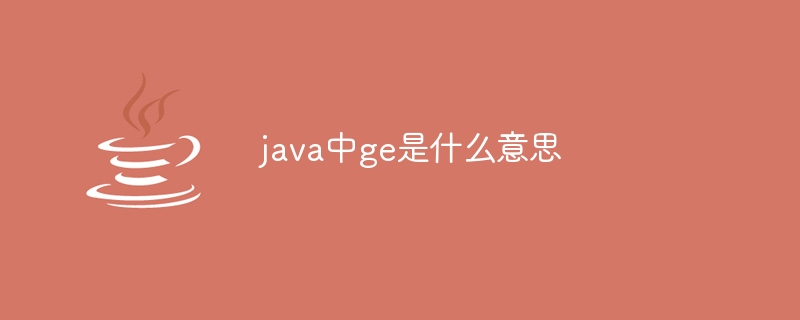Home >Java >javaTutorial >What does ge mean in java
What does ge mean in java
- 下次还敢Original
- 2024-05-09 07:09:181073browse
The GE operator in Java stands for Greater Than or Equal To and is used to determine whether two expressions are greater than or equal to. The syntax is: boolean result = expression1 >= expression2; Returns true if expression1 is greater than or equal to expression2, otherwise returns false. Commonly used in conditional statements and loops, such as if (value >= threshold) and while (index >= 0).

GE Operator in Java
What is GE?
GE is the abbreviation for Greater Than or Equal To, which is a comparison operator used to determine whether the values of two expressions are greater than or equal to.
Syntax
<code class="java">boolean result = expression1 >= expression2;</code>
Where:
- expression1 and expression2 are the expressions to be compared.
- result is a Boolean value, true means expression1 is greater than or equal to expression2, false means expression1 is less than expression2.
Example
<code class="java">int a = 5; int b = 3; boolean result = a >= b; //结果为 true,因为 5 大于或等于 3</code>
Usage scenarios
The GE operator is usually used in conditional statements and loops. For example, you can use it in an if statement to check whether a value is greater than or equal to a certain threshold.
<code class="java">if (value >= threshold) {
// 执行某些操作
}</code>
In a loop, you can use the GE operator to check whether the loop condition still holds, thereby determining whether the loop should continue.
<code class="java">while (index >= 0) {
// 循环体
index--;
}</code>
Note
- The GE operator can be used on any primitive type or numeric wrapper class (such as Integer, Double).
- For strings, the GE operator will compare alphabetically.
The above is the detailed content of What does ge mean in java. For more information, please follow other related articles on the PHP Chinese website!

